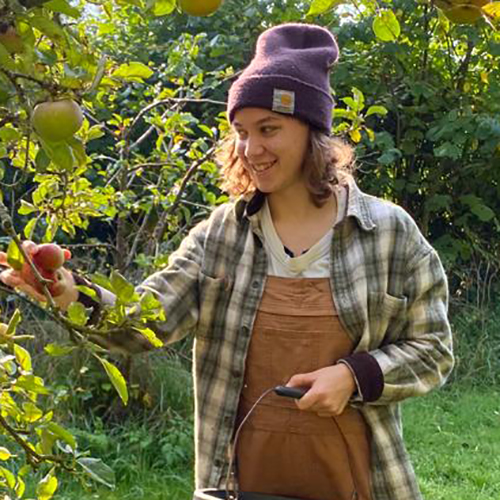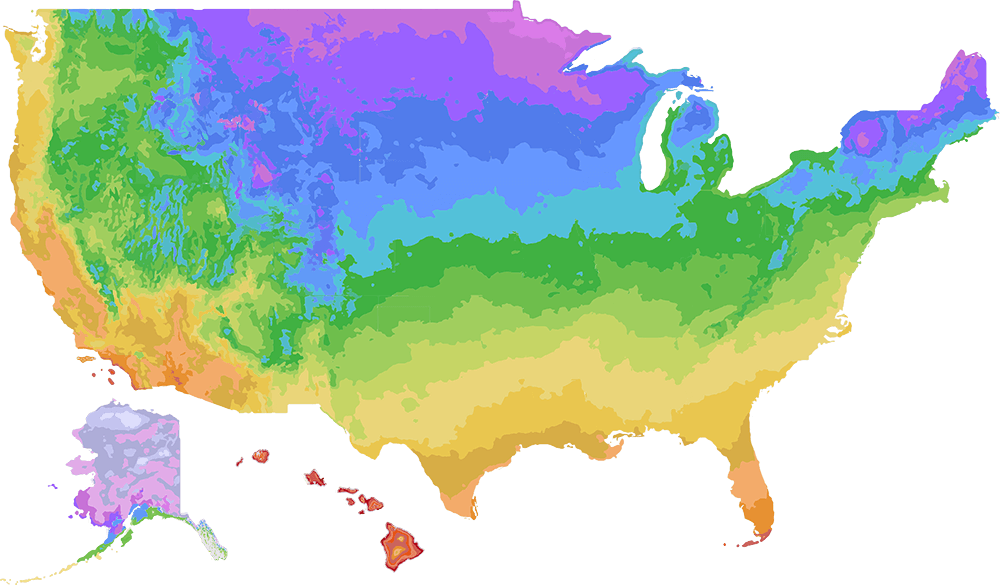 Proven Winners® Grower Excellence Scholarship Winner Proven Winners® Grower Excellence Scholarship Winner
(Scholarships for $5,000)
Alan Henry
Eden, NY
Cornell University
I would like to work into my family’s farm to streamline production, and increase the sustainability of our operation. Customer interactions are key in a retail greenhouse, we as growers are able to learn what the customer desires, and can improve our practices based on these interactions.
|
 Proven Winners® Innovations in Horticultural Marketing Scholarship Winner Proven Winners® Innovations in Horticultural Marketing Scholarship Winner
(Scholarship for $5,000)
Emma Brinks
Grand Rapids, MI
Michigan State University
I want to be a part of connecting the members of our Horticultural community to our broader communities outside the industry. I want to do this by writing for Horticultural publications and assisting hardworking Horticulturists determine the best way to market their products and services to consumers and share their skills with their surrounding community members. Ideally this would entail working with an Extension program, or other grower support system that would enable me to help growers and industry members the best way to target their customer base, isolate their production goals, communicate their objectives and mission to others, and establish sustainable business plans that can benefit the workers, industry, and communities.
|
 Proven Winners® Innovations in Plant Breeding Scholarship Winner Proven Winners® Innovations in Plant Breeding Scholarship Winner
(Scholarship for $5,000)
Prabhjot Kaur
Lansing, MI
Michigan State University
The long-term goal of studying the genetics of development rate is to use this knowledge for accelerating the crop timing at non-optimum temperatures, increasing the production of seasonal crops and for increasing the biomass/yield of crop plants. Hence, my PhD project focuses on understanding the genetics of development rate in two crop species: Petunia x hybrida and Stevia rebaudiana. The understanding from these crops could be utilized to breed agricultural varieties having faster development rate.
|
Proven Winners® Technical or 2-Year Post-Secondary Institution Scholarships
(Five scholarships for $2,000 each)
Many horticulture students begin their post-secondary schooling at 2-year or vocational technology schools as a way to enter the work force sooner. Since horticulture tends to be a very hands-on career with much knowledge gained through work experience, this is an excellent way to break into the industry. We are proud to support five exemplary students who have chosen this route for their schooling and wish them the best of success for the future.
 Aaron Campbell - $2,000 Aaron Campbell - $2,000
Vancouver, BC
University of British Columbia
Tending to greenspace has instilled in me a deep appreciation for horticulture, botany, ecology, and sustainable food-production processes. I have a personal passion for these subjects and at every opportunity attempt to influence neighborhood homeowners to convert their yards into food-producing space that promotes biodiversity
|
 Aunna Torres - $2,000 Aunna Torres - $2,000
Solon, OH
Cuyahoga Community College
What I love about this industry is the potential to make a long-term impact not only on the field but on the planet itself. Plants hold immense power and the ability to understand that power and properly use it to create high-quality and sustainable plant products for the future is something not to be taken lightly
|
 Alyssa Steele - $2,000 Alyssa Steele - $2,000
College Park, MD
Institute of Applied Agriculture & University of Maryland
My main goal in public horticulture is to get people impassioned by the power of horticulture. I want people to rethink their interpretation of the way people have gardened in the past, and broaden their view of how modern horticultural styles can improve the environment to benefit people and wildlife.
|
 Lisa Vanin - $2,000 Lisa Vanin - $2,000
Etobicoke, ON
Seneca College
I wish to learn and excel in any missing components of my self-education of horticulture. With this knowledge, I can confidently begin my career in designing environmentally responsible gardens that utilize native plants and build habitats for local species. Where possible, I intend on focusing my ELM projects to incorporate and consider, beneficial insects, habitat conservation, watersheds, xeriscaping, permaculture, and community garden projects.
|
 Samantha Held - $2,000 Samantha Held - $2,000
Winfield, PA
Pennsylvania College
Aquaponics is using fisheries to provide nutrients into the waters where the plants are growing. Hydroponics has earned its name over the decade, and people are moving towards it more the better of society. When I see these options, I think of all the endless possibilities I could do to make some of them my own. Aquaponics has many beautiful aspects. The fish play a significant part in our greens' growing process, maybe even other plants potentially.
|




 Proven Winners® Grower Excellence Scholarship Winner
Proven Winners® Grower Excellence Scholarship Winner Proven Winners® Innovations in Horticultural Marketing Scholarship Winner
Proven Winners® Innovations in Horticultural Marketing Scholarship Winner Proven Winners® Innovations in Plant Breeding Scholarship Winner
Proven Winners® Innovations in Plant Breeding Scholarship Winner Aaron Campbell - $2,000
Aaron Campbell - $2,000 Aunna Torres - $2,000
Aunna Torres - $2,000 Alyssa Steele - $2,000
Alyssa Steele - $2,000 Lisa Vanin - $2,000
Lisa Vanin - $2,000 Samantha Held - $2,000
Samantha Held - $2,000

